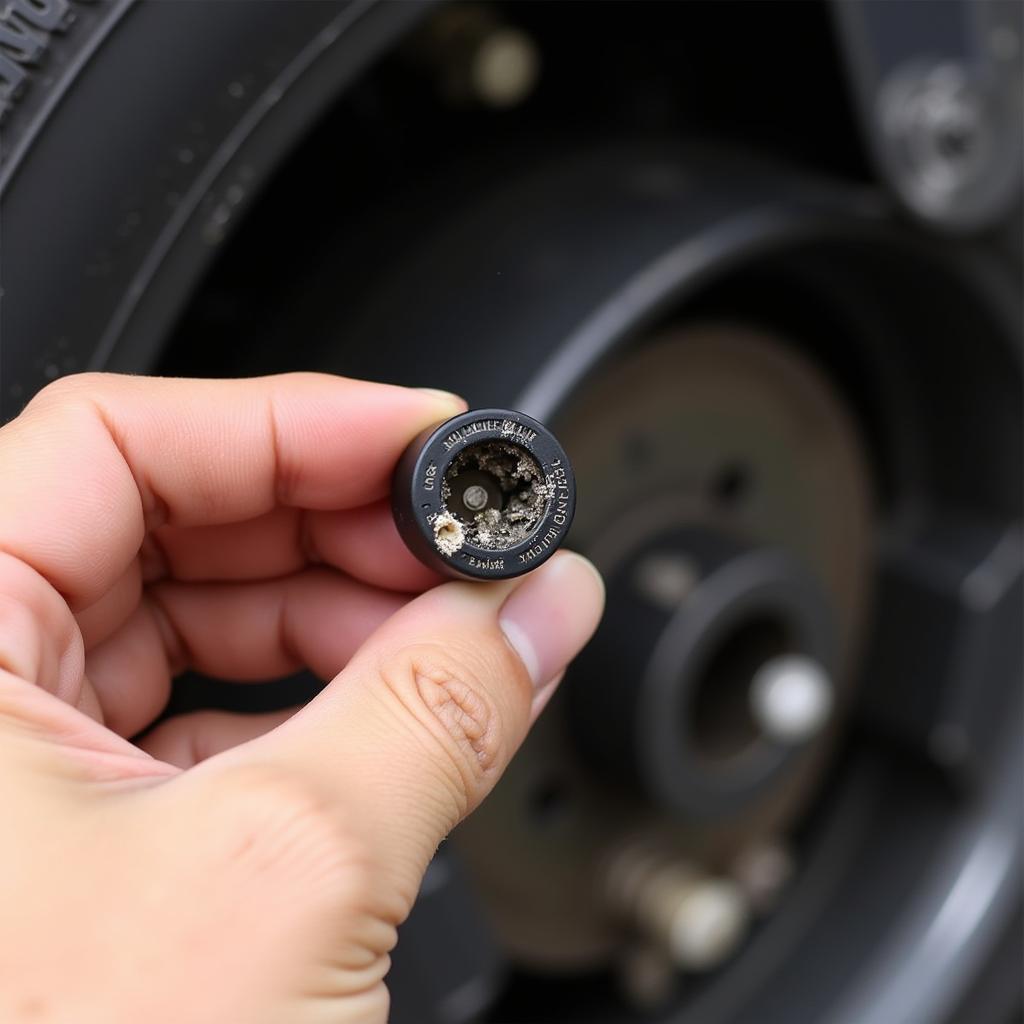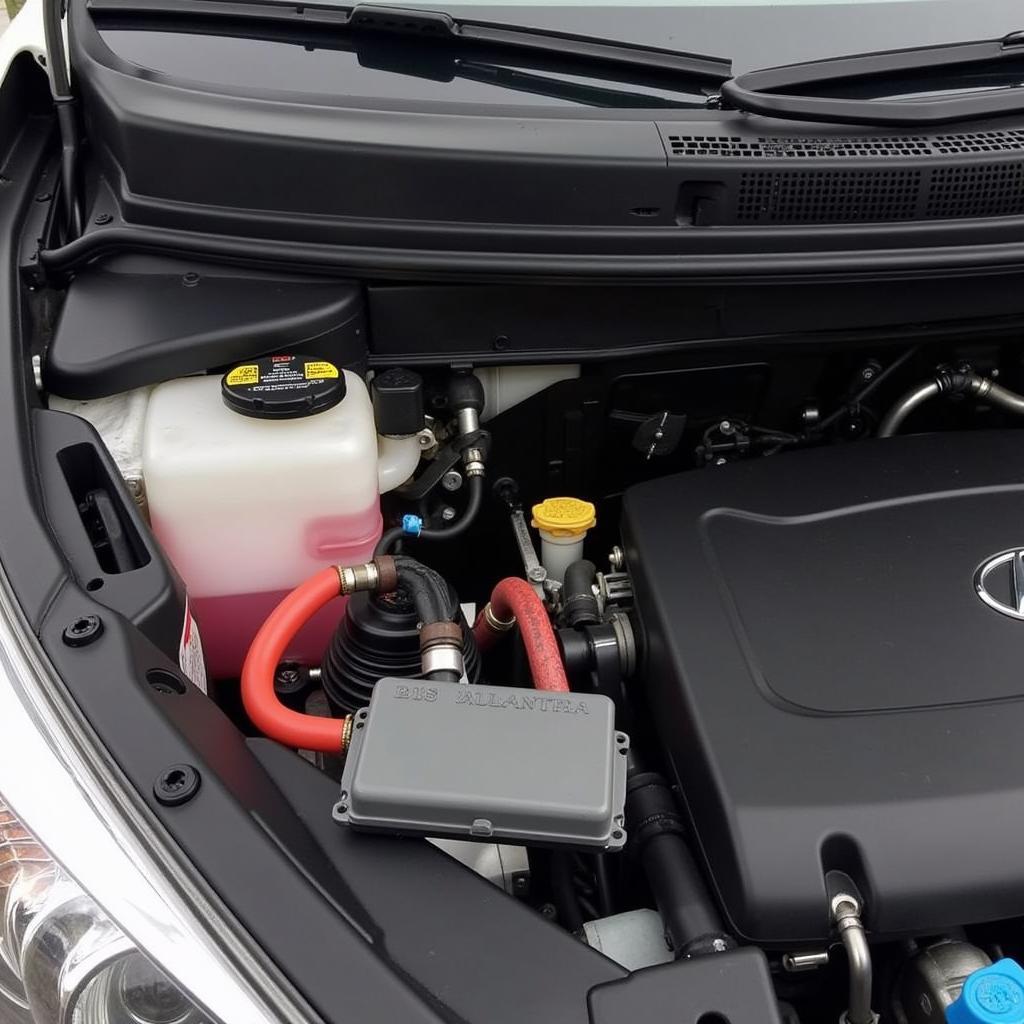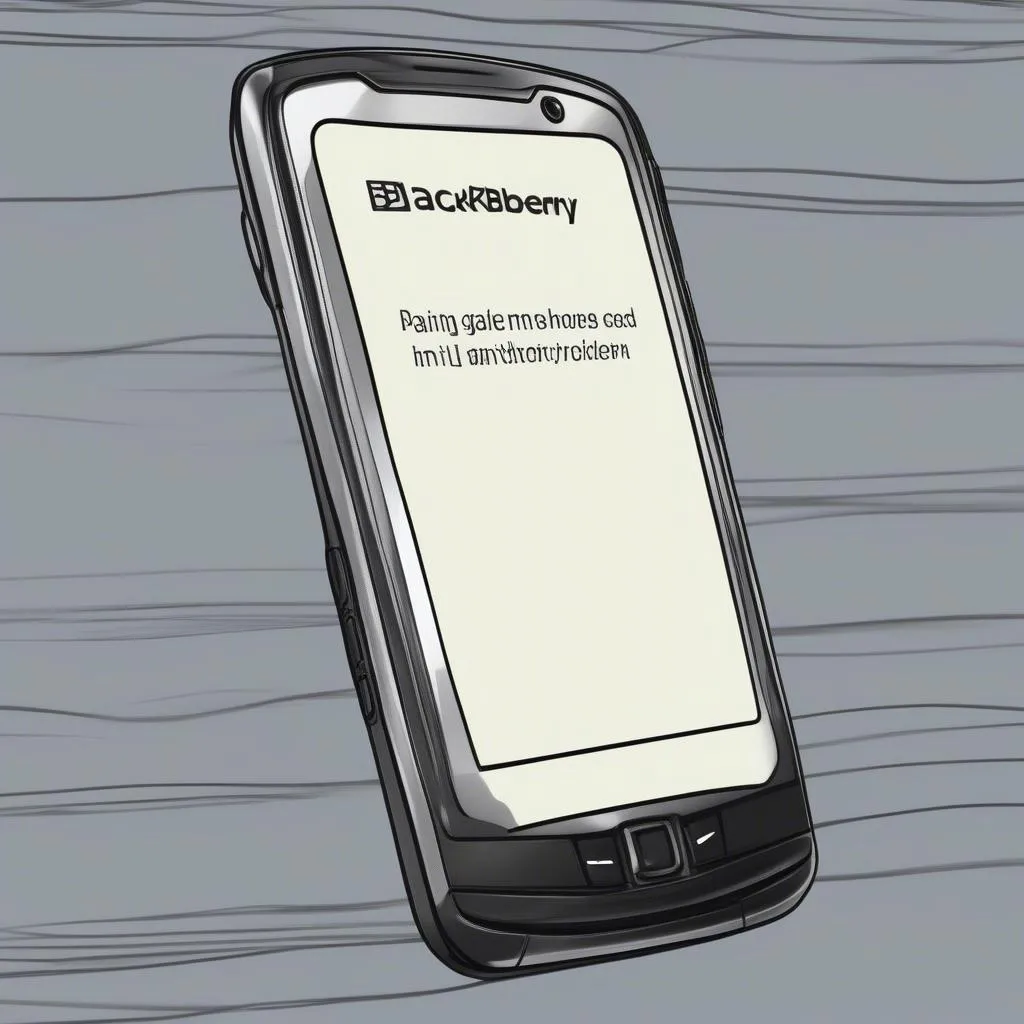If you’re experiencing a rapidly flashing brake light warning light on your Hyundai Elantra, it’s crucial to address this issue promptly. This warning signal often indicates a problem within your braking system that requires immediate attention.
While the exact cause might vary, this article will guide you through the potential reasons behind this flashing light and offer practical solutions to help you diagnose and potentially fix the issue.
Common Culprits Behind a Flashing Brake Light Warning Light
A quickly flashing brake light warning light typically signals an issue with your vehicle’s Electronic Brake Control Unit (EBCU) or a malfunction within the hydraulic system. Here’s a closer look at the potential culprits:
1. Malfunctioning Wheel Speed Sensor
Your Elantra’s wheel speed sensors play a vital role in the Anti-lock Braking System (ABS), which prevents wheel lockup during braking. A faulty sensor can disrupt the EBCU’s ability to regulate brake pressure effectively, triggering the warning light.
 Faulty Wheel Speed Sensor
Faulty Wheel Speed Sensor
2. Low Brake Fluid Level
Brake fluid is the lifeblood of your car’s braking system. If the fluid level drops too low, it could indicate a leak or worn brake pads. When the EBCU detects insufficient brake fluid pressure, it activates the flashing brake light warning to alert you.
3. Issues with the ABS Module
The ABS module is the brain behind your Elantra’s anti-lock braking system. If this module malfunctions, it can disrupt the entire braking system’s functionality, leading to the flashing warning light.
 Hyundai Elantra ABS Module
Hyundai Elantra ABS Module
4. Faulty Brake Light Switch
Although less common, a malfunctioning brake light switch can also be the culprit. This switch signals the EBCU to activate your brake lights when you press the brake pedal. A faulty switch might send incorrect signals, triggering the warning light.
Troubleshooting the Flashing Brake Light Warning Light
While it’s best to consult a qualified mechanic for a comprehensive diagnosis, here are some preliminary steps you can take to troubleshoot the issue:
- Check Your Brake Fluid Level: Park your Elantra on a level surface and locate the brake fluid reservoir under the hood. Ensure the fluid level is within the “MIN” and “MAX” markings. If it’s low, add the recommended brake fluid type for your Elantra.
- Inspect for Brake Fluid Leaks: Carefully examine the area around the brake fluid reservoir, brake lines, and near the wheels for any signs of fluid leaks. A leak will require immediate attention from a mechanic.
- Check Your Brake Lights: Have someone press the brake pedal while you visually inspect all brake lights, including the third brake light. If any lights are out, replace the bulbs.
- Scan for Diagnostic Trouble Codes (DTCs): Using an OBD-II scanner, you can retrieve any stored DTCs related to your braking system. These codes can pinpoint the source of the problem.
“It’s important to remember that addressing a flashing brake light warning light often requires specialized knowledge and tools. While these initial steps can provide some insights, seeking professional help is crucial for a thorough diagnosis and safe repair,” says Jake Peterson, a senior automotive electrician at Peterson Automotive.
Seeking Professional Assistance
If your brake light warning light continues to flash quickly after performing these basic checks, it’s time to consult a qualified mechanic specializing in Hyundai vehicles. They possess the expertise, equipment, and diagnostic tools to pinpoint and rectify the underlying issue efficiently and safely.
Conclusion
Ignoring a flashing brake light warning light in your Hyundai Elantra can lead to potentially dangerous braking situations. By understanding the potential causes and taking prompt action, you prioritize your safety and ensure your vehicle remains in optimal condition. Remember, seeking professional help is always recommended when dealing with complex car systems like your brakes.

